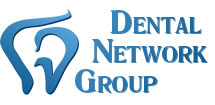Is Your Patient Data Protected?
One of the most import issues we see in dental office computer technology relates to virus attacks. They happen when the employee or doctor innocently clicks on a friends email link. That action draws in a potentially harmful virus, malware, spyware, trojans infecting the workstation, the entire network, and sometimes corrupting patient data.
When this happens, the effects on the bottom line can be crippling. Viruses can render a desktop or server inoperable if not caught by the antivirus software, which leads to downtime while the damage is repaired.
Besides rendering your system inoperable, viruses infecting your email system can be sent out automatically to your patients and other contacts, infecting their systems and contacts. The best remedy for preventing viruses is twofold:
1) Acquire a quality Anti-virus program
Many people I talk to think having Norton, McAfee, or a free virus software is enough to protect their business. These name brand software packages do protect you against most viruses. However, they do not protect against malware, trojans and spyware.
AccuNet recommends ESET Endpoint Antivirus as it provides best in class protection from malware, trojans and spyware unlike many of the major brands. To prevent infections, virus updates need to be configured to pull updates directly from the server or directly from Eset for each machine.
2) Install a Commercial Grade Firewall
AccuNet recommends a hardware based firewall for protection from the following threats:
- Intrusion from the outside world such as hackers and patient data thieves.
- Gateway Anti-virus to protect the network as a whole.
- Secure connection between main site and branch office(s).
- Block unwanted websites.
- Prevent users from accessing time-wasting and potentially harmful applications on the company’s network.
Compromised data is a liability that leaves you vulnerable to patient identity theft and a potential public relations nightmare for your practice. All it takes is one hack to damage your practice’s reputation in the community.
A Windows firewall is not enough, as it is leveled down for a consumer style computer. What a dental practice needs is a commercial grade firewall for maximum, HIPPA compliant protection. According to Kelly Soderlund in a December 2011 article for the ADA, “The federal government is conducting audits to ensure medical professionals and businesses are complying with the privacy, security and breach notification provisions of the Health Insurance Portability and Accountability Act.” At AccuNet, we see this as a future trend.
Further, according to Chris Verbiest of Dentists Management Corporation, “With more practices going paperless or considering it, and ever-changing technology, dentists are increasingly at risk for a data breach.”
If you are unsure where your computer network stands right now and would like a qualified professional to take a look, feel free to contact me at the following information.
Brian Gorenflo, Sentry Global technologies - Click here to contact us

